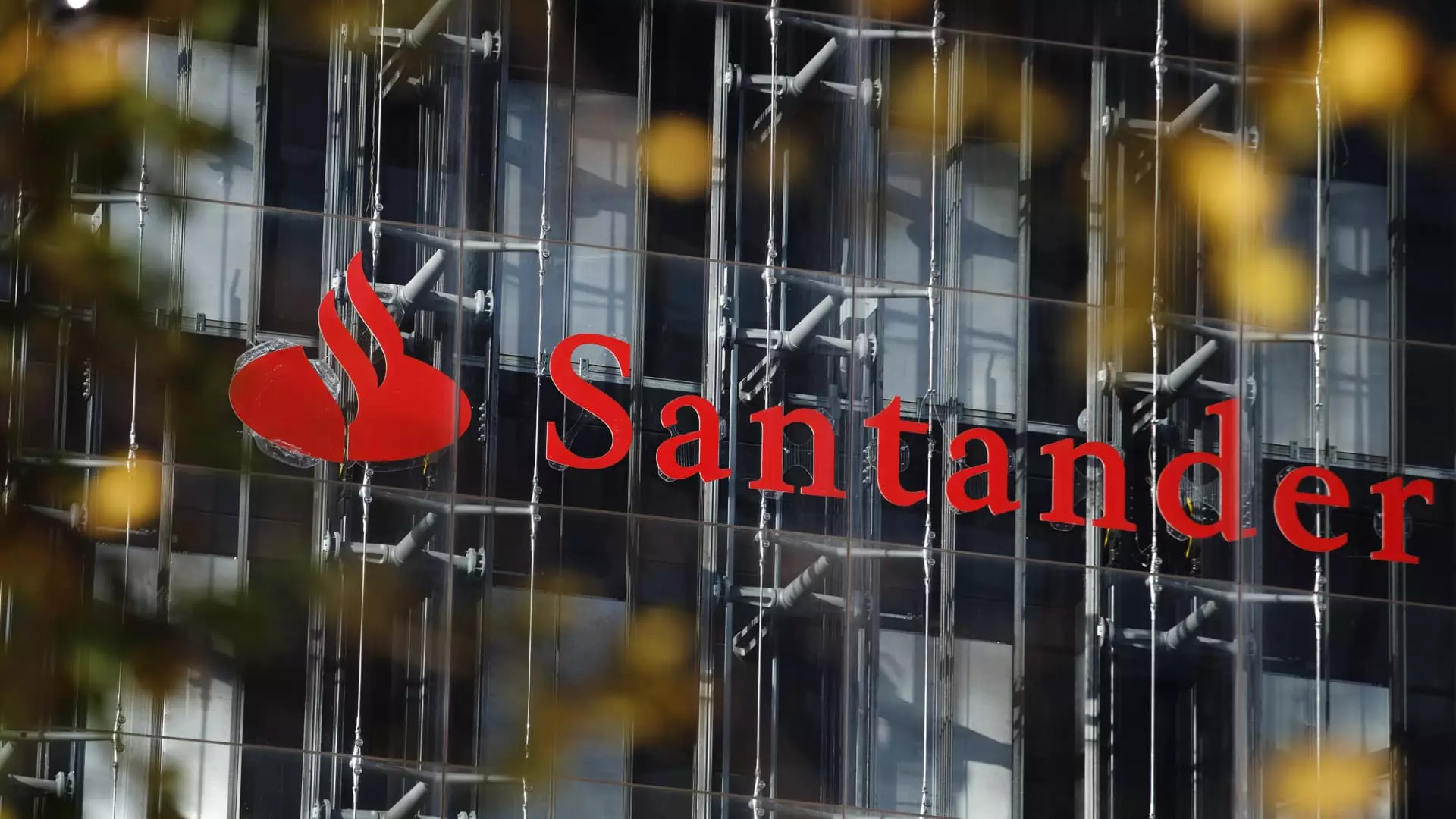In an unexpected twist that has rattled the financial world, Banco Santander has outpaced UBS to claim the title of the largest bank in continental Europe by market capitalization. This shift underscores the fundamental vulnerabilities within the European banking sector, exacerbated by U.S. trade policies that seem to favor disruption over protectionism. For investors, this serves as a stark reminder of how quickly fortunes can change. Santander’s ascendancy, buoyed by strategic partnerships and a resilient business model, starkly contrasts with UBS’s decline, driven by a host of external pressures and an unclear path forward amidst rising costs and regulatory uncertainties.
The dynamics between these two banking giants reveal deep-seated issues within their respective strategies. Santander’s recent partnership with telecom powerhouse Verizon exemplifies its forward-thinking approach and ambition to diversify its earnings. Conversely, UBS’s reliance on its global wealth management services, particularly in regions heavily affected by U.S. tariffs, has placed it in a precarious position. It raises the question: can traditional financial models withstand the shocks of geopolitical maneuvering?
Tariffs and Market Responses: A Reckoning
The U.S. administration’s decision to impose tariffs, fluctuating between 10% and 20%, has sent shockwaves throughout the European banking ecosystem. UBS, once a titan of stability, has witnessed a staggering 17.2% drop in market value year-to-date, which starkly contrasts with Santander’s remarkable 35% rise. This divergence isn’t merely a statistic; it reflects the shifting sands of international finance where uncertainty reigns and protective policies can cripple even the most established institutions.
For investors looking for stability in European banking, this volatility raises alarms. The unpredictability of international trade relations and the accelerating pace of tariff adjustments present a perennial risk that could hinder recovery. Furthermore, with Switzerland operating outside of the EU, the Swiss bank faces even steeper penalties should trade relations deteriorate further, leaving UBS more vulnerable than its competitors. The potential fallout from heightened tariffs could cripple UBS’s lucrative brain trust in wealth management if economic conditions worsen, resulting in a severe reconsideration of asset valuations.
Understanding the Impact of Currency Strength
The Swiss franc’s recent appreciation presents a classic double-edged sword for UBS. Once a bastion of strength during times of market insecurity, the currency’s rise threatens to undermine the very exports that buoy the Swiss economy. This creates a paradox for UBS as its profitability could drastically decrease due to a rising franc that makes Swiss exports less competitive globally.
In contrast, Santander, which has a more manageable exposure to the U.S. market—accounting for only 9% of its profits—may ultimately find itself in a more advantageous position. The effects of currency fluctuation can impact interest rates, which are pivotal for profitability in banking. As the European Central Bank prepares to adjust rates in a way that could favor lenders, UK investors need to critically assess UBS’s strategy against the backdrop of these shifting monetary policies and choose carefully where to place their bets.
The Perils of Over-Reliance on Certain Markets
UBS’s heavy investment in wealth management in America seems to reflect a broader industry trend—dependency on a single market can be perilous. As seen with UBS, the considerable exposure to risk-laden segments can lead to an inability to pivot swiftly amidst unforeseen shifts in the market landscape. This underscores a crucial lesson for investors: diversify, diversify, diversify. Santander has thrived by reducing its reliance on any single market, while UBS’s strategy may leave it vulnerable to external shocks.
One can only wonder how UBS will react to the unfolding economic landscape. Leadership needs to be attentive and proactive, not reactive—an essential quality for navigating the uncertain waters of global finance. A lack of foresight could plunge UBS into deeper crises, reminiscent of the downfall of other financial giants in history. Investors should scrutinize the bank’s strategies and be prepared for any fallout as the global economic climate remains in flux.
These developments serve as a vital lesson for investors and analysts alike: be wary of complacency in an era defined by rapid change. What rises can just as swiftly fall; and in the game of high finance, modernization and adaptability are essential to thrive in this ever-evolving landscape.

